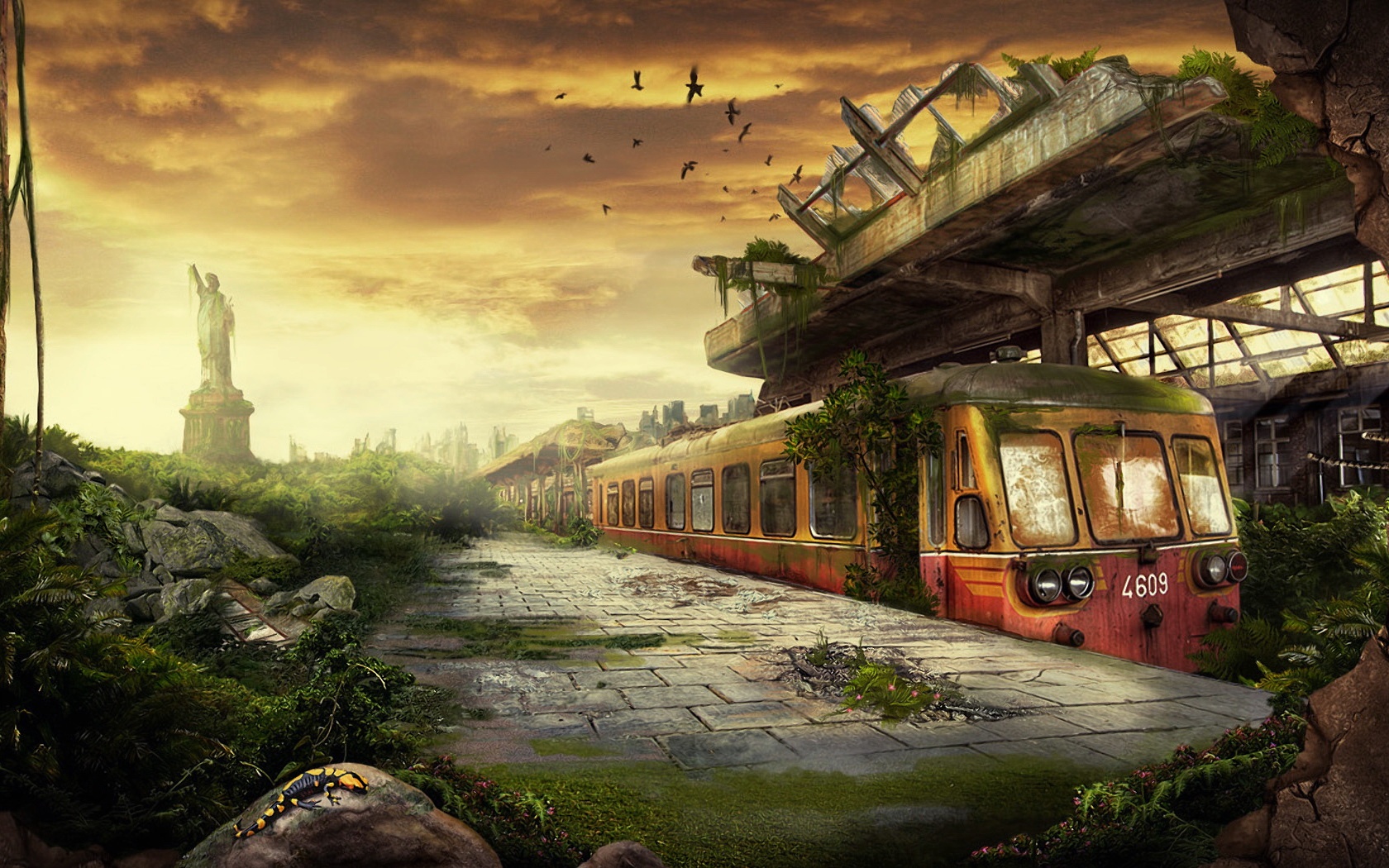The world will be a significantly prettier / better place ;p.
There would be a lovely descendance into traditional Darwinian principles in which our custom-bred pocket sized pooches will die very quickly.
There are no animals that are known to have been genetically modified to a great extent, at least within the public eye. The most we've really done in terms of GM on animals is altering genes so that a certain protein, chemical or enzyme is produced within milk for example. That's not a huge survival boost.
Nuclear reactors, especially the older ones, have very little in the way of "No one's here" procedures; I'm not sure any reactors in the world do for that matter, as it's not something that people tend to consider on a daily basis. We're self-indulging creatures; if we're not here, why does anything matter eh? ;p For anyone that still doesn't catch my meaning; we're talking major meltdown, unless enough control rods have already been deployed, in which case the fuel rods will just decay naturally and with very little effect. However; one unattended burst in a pipe or a fault with the control systems (likely caused by the loss of electrical power, unless of course, the designers were intelligent and powered the reactor station from the reactor itself instead of from the national grid) and KABLOOEY. A lovely Chernobyl scale area of ionising wonderfulness.
Endangered animals would probably
rise in population @
Toxiclord , the largest cause of decline in the numbers of endangered animals is human intervention. In terms of marine life it's things like the construction of new fuel lines or drilling platforms, boats in general (Some creatures get confused, scared etc), hunting, overfishing and general human arse-holery.
In terms of land based animals; again, declining numbers are almost entirely caused by human hunting if we're considering the African ecosystems. At the end of the day, the death of land animals in large numbers is all due to hunting or the loss of habitat. It's in no way due to these animals being poorly evolved; I mean, they're here for god sake, and is more due to the fact that we can't leave anything alone once we see something we wouldn't mind having.
With us gone, animals will be free to naturally develop and climb / fall in numbers (I'm looking at you cows) until an equilibrium is reached globally. That's how nature works; gentle balances that are settled upon over time.
It may come across in this post; but I'm not a fan of humans in general, I'm very much of the opinion that we're the most monstrous creature to ever touch this planet. All hail global style anarchy.








